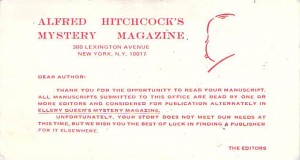This post from 2013 addresses a major issue for folks who say that they want to write a book.
Having been a teacher, coach, editor—and, of course, a novelist—for the past couple of centuries, I have heard it all from wanna-be writers about how difficult it is to make themselves sit down and begin writing a book, which at the least should be 70,000 words in length. I can empathize with these folks, because that’s exactly how I started out. More on that shortly.
 During the ’90s I taught a multi-week writing course at a community college. The fee being only a couple of bucks, I’d usually start out with anywhere from forty to seventy students. At first I thought, This many people are writing novels? Then, I learned that up to half of them had never put word one down on paper; they were just checking out what the process involved. For a couple dollars and a few hours, why not? So I’d start my lectures, and by the second or third week the class would be reduced by a third, a half, even more. This remained consistent through all the years that I taught at the school. Most people are just not prepared to make the commitment to write a book—and a big commitment that is.
During the ’90s I taught a multi-week writing course at a community college. The fee being only a couple of bucks, I’d usually start out with anywhere from forty to seventy students. At first I thought, This many people are writing novels? Then, I learned that up to half of them had never put word one down on paper; they were just checking out what the process involved. For a couple dollars and a few hours, why not? So I’d start my lectures, and by the second or third week the class would be reduced by a third, a half, even more. This remained consistent through all the years that I taught at the school. Most people are just not prepared to make the commitment to write a book—and a big commitment that is.
Consider this: all of the great ideas in the world, all of the great storylines, all the desire, the ambition, and everything else won’t mean a freaking thing unless you actually start putting those words down on “paper.” This may be one of the hardest things to deal with, and not only for the wanna-be writer, but even for someone who has written for a while. The key word here is DISCIPLINE, and without a doubt it deserves our attention.
I related my own story in a different context once before, but it is logical to expand upon it here. I spent the first half of my life knowing that I was going to be a writer, even saying that I was a writer…and in all that time I hardly wrote a damn thing. Looking back now, I think a great deal of this had to do with FEAR. Most writers I know, me included, deal with buckets of fear—the fear of not being able to follow through and finish a full-length novel, the fear of ridicule, of rejection if and when the book does get done. It can paralyze you.
So for years I came up with every excuse I could to not start writing. “How can I write today? The goldfish died.” Or, “Can’t start tonight, there’s a great truck ’n tractor pull on the tube.” Or, “I was gonna start this weekend, but the surf’s up!” (Not valid for those living in Iowa or North Dakota.)
 Yeah, there’s always a “next day” to get started. But my “next day” came for real in the late ’70s with a simple New Year’s resolution. No, it wasn’t, “This is the year I’m going to write something.” I had been there and done that, and it didn’t work. The resolution I made: “This is the year I’m going to get my first rejection slip.” That sounds negative, but consider this: in order to receive a rejection slip you must send something to somebody. And in order to do that, you first had to write it. So I wrote an awful suspense/ghost short story and sent it off to Alfred Hitchcock Mystery Magazine. Back it came with this little form rejection postcard. Success!!! That postcard still hangs over my desk.
Yeah, there’s always a “next day” to get started. But my “next day” came for real in the late ’70s with a simple New Year’s resolution. No, it wasn’t, “This is the year I’m going to write something.” I had been there and done that, and it didn’t work. The resolution I made: “This is the year I’m going to get my first rejection slip.” That sounds negative, but consider this: in order to receive a rejection slip you must send something to somebody. And in order to do that, you first had to write it. So I wrote an awful suspense/ghost short story and sent it off to Alfred Hitchcock Mystery Magazine. Back it came with this little form rejection postcard. Success!!! That postcard still hangs over my desk.
With that barrier broken I wrote my first novel, an adventure fantasy story titled, The Master of Boranga, and I never looked back. Even with a long hiatus in my writing career for personal reasons I have written over thirty novels, with more to come.
 WHAT ABOUT MAKING TIME TO WRITE?
WHAT ABOUT MAKING TIME TO WRITE?
Good question. It was easy for me back then—at least for a while—because I could do it full time. But before long I found myself racing toward the poverty line and had to get real, which meant getting a job. Still obligated to write a novel under contract with Zebra Books, I would go out to my portable office (a beat-up old Ford Pinto) in the parking lot and write during my lunch hour. Did that amount to anything? Since I kept an ongoing word count it was easy to check, and when I completed the book some months later I discovered that I had written over 30 percent of it during lunch. Does every hour matter? I think so.
I became interested back then in what kind of schedule successful authors kept, and here is some of what I learned. Stephen King wrote from 11 a.m. to 2 p.m. every day of the year except Christmas, the Fourth of July, and his birthday. Judy Blume wrote for a couple of hours in the morning, the same in the afternoon, and then she read her output in the evening. Danielle Steel wrote eighteen-twenty hours a day until her book was done. (I once kept that kind of schedule.)
Through time and circumstance, their schedules might be different these days. I know that mine is. Now that I’m retired and have more time, the schedule goes like this: I take a long walk in the morning and then start writing about mid-morning. Late in the afternoon, four, maybe five o’clock, the “creativity” button in the brain shuts off, and I stop. The usual output is 1,500 to 2,000 words. (You’re right: I’ve always written fast.)
But most of you don’t have all the time in the world, so why even get started, you may think. First off, having a job, a family, a life, does not deter the most dedicated writers. (See my post about passion, “Writers Are Amazing.”) I’ve worked with writers whose books have taken two years, three years, even longer to write. They never gave up, because of that passion.
 Perhaps this formula will put it into perspective and get you started. At my peak I could write anywhere from 500 to 700 words an hour, and even recently, having slowed down most aspects of my life, I’m writing 400 to 500 words an hour. But let’s cut that way down for you. A standard, double-spaced manuscript page averages 250 words. ONE PAGE. If you found one hour a day to write one page, at the end of the week you’ll have written 1,750 words. In forty-two weeks, LESS THAN ONE YEAR, you’ll have completed the first draft of a 75,000-word manuscript.
Perhaps this formula will put it into perspective and get you started. At my peak I could write anywhere from 500 to 700 words an hour, and even recently, having slowed down most aspects of my life, I’m writing 400 to 500 words an hour. But let’s cut that way down for you. A standard, double-spaced manuscript page averages 250 words. ONE PAGE. If you found one hour a day to write one page, at the end of the week you’ll have written 1,750 words. In forty-two weeks, LESS THAN ONE YEAR, you’ll have completed the first draft of a 75,000-word manuscript.
Doable? Indeed. Just think about writing a novel in smaller increments. Happy writing!

Perfect timing – I needed this reminder! :0) Now to get my butt in the chair and write!
Glad to be of assistance, my dear! 🙂